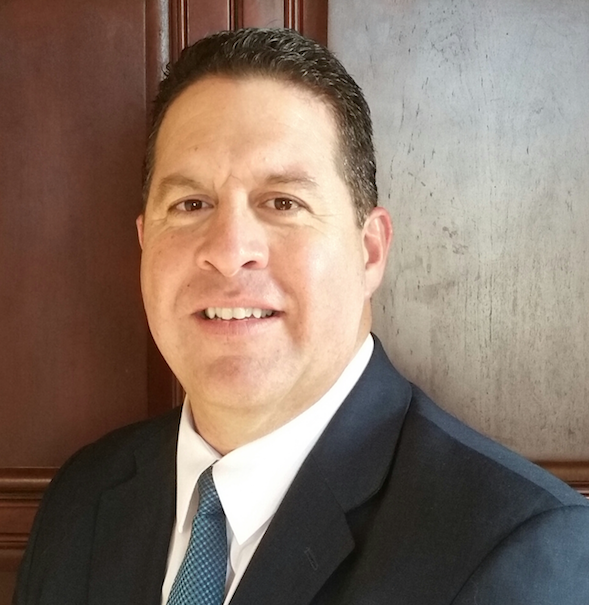
Physician background checks are a critical part of the hiring process. Candidate evaluation is like a puzzle, and you want to get the whole picture.
Conducting background checks allow you to see most relevant aspects of a candidate’s life to help you make a hiring decision.
Physician recruiters conduct background checks for two purposes: to ensure competence on the part of the provider, and to ensure safety on behalf of the candidate and everybody involved.
It helps mitigate risk for your patients, your community and your hospital. It helps you maintain a safe environment for both medical staff and patients. Financial liability for a health care organization is a real concern—and the responsibility to properly screen prospective candidates lies with us.
When to conduct a physician background check
Certain aspects of a physician background check can be done prior to the candidate coming out for an in-person site interview. Many organizations choose to conduct a check with the National Practitioner Data Bank (NPDB) to ensure that it makes sense to bring the candidate out to interview. If there are many negative entries on the report, those should be checked before investing everybody’s time, energy and financial resources.
Learning key negative information, such as if the candidate could never even be credentialed with the hospital, is important to know upfront. Many organizations choose, as company policy, to conduct professional reference checks prior to inviting a candidate out to interview in person. The decision as to when to conduct background checks is, to a large extent, a question each organization needs to address internally, and decide which path aligns with their values and company philosophy the best. The group should also consider how much perceived risk they may be taking by not conducting checks ahead of time.
However, the decision to heavily front load background investigations must be carefully balanced with the desires of the candidate and the message that candidates may receive by doing this ahead of time.
Interviews are a two-way process of discovery, information gathering, and give and take. Oftentimes physicians resent, or even refuse, to release personal information without first knowing if they may be interested in the health care organization themselves. They may feel that to agree to release personal and sensitive information to a potential employer is unwarranted and unnecessary until both parties have come to an agreement to mutually proceed forward with a formal executable contract.
If the health care organization insists on doing so prior to coming to agreement with the provider, and the provider is soured by the request, the organization runs the risk of casting a negative tone on both parties’ dialogue and interview process.
Occasionally, the candidate may choose out of principle to remove him or herself from the interviewing process altogether—and then everybody loses.
Choose your time carefully and be balanced in your approach to meet the needs of both parties.
How to conduct a physician background check
There are basically three overall approaches to conducting a physician background check:
- You can outsource the entire process to a third party group.
- You can do it all yourself.
- You can outsource certain aspects of the search and do other aspects yourself.
Conducting a background check starts with asking good questions. Some questions I regularly ask are:
- Any there any restrictive covenants or non-compete agreements we need to be aware of?
- (If practicing) Do you have tail coverage?
- (If they are leaving) Were you asked to leave?
- Will the CEO or other colleagues say anything negative about you?
- Is there anything in your background which may be perceived as negative?
- What’s your malpractice history?
- Have you had any hospital privilege or disciplinary action issues?
- Has your professional license, registration or DEA ever been terminated, stipulated, restricted, limited, conditioned, suspended, revoked, refused, voluntarily relinquished, or not renewed by any licensing board of any health-related agency or organization, or is there a review pending?
- Has your professional liability carrier ever refused or canceled your coverage?
- Have you ever been the subject or target of a sexual harassment complaint or investigation or other complaint or investigation involving sexual misconduct or impropriety?
- Are there any charges pending, or are you currently charged with or have you ever been indicted or found guilty of a felony, misdemeanor (other than a minor traffic violation), or other offense involving fraud, misrepresentation, dishonesty or deceit?
- Has your certificate or participation in any private, federal (i.e. Medicare, Medicaid, etc.) Or state health insurance program ever been revoked or otherwise limited or restricted, or is any investigation or proceeding with respect to any such action presently underway?
- Have you ever been reprimanded, censored, or otherwise disciplined by, or have you ever been subject to a corrective action agreement/plan with any licensing board, peer review organization, third-party payer, clinic, hospital, medical staff, or any health-related agency or organization?
- Have you ever voluntarily or involuntarily relinquished your clinical privileges or request for privileges?
What to check
Organizations decide on the checks they perform based on factors such as cost, organizational requirements, state and/or federal government regulations and the level of risk they can tolerate.
The level of depth or amount of information that an organization may want to achieve varies; namely, how important all of the information is for them to be comfortable in making a hiring decision.
Not all information on a candidate is weighted equally. Some information is vital to know, such as state licensure. Other information, such as the candidate’s credit score, is arguably not near as important to know, if at all. Some examples of information requests include:
- Verify that the physician has the qualifications to be granted privileges and/or be employed.
- Verify that the physician doesn’t have a criminal history or disciplinary actions that would exclude the individual from employment.
- Check to see if the physician has been sanctioned or excluded from participating in federal and state health care programs.
- Check the OIG (Office of Inspector General) and GSA (General Services Administration) to search the Fraud and Abuse Control Information System (FACIS), a current and historical database of sanctions, exclusions, debarments and disciplinary actions, for information about an applicant.
- Administer a tools such as Talent Plus, DDI or The Profiles XT assessment to measures how well an individual might fit within a specific organization or group by assessing thinking style, natural tendencies and behaviors and attitude toward performance-related issues.
- Check the NPDB. According to The NPDB Guidebook, “Hospitals and other health care entities may query on practitioners when making determinations regarding employment or affiliation. For example, the human resources departments of hospitals and health care entities may query the NPDB on nurses, nurse aides, radiological technicians, physical therapists, and other health care practitioners when making hiring decisions.” They don't necessarily indicate when in the process that the query can or should be done. It is recommend that you have the provider candidate sign a release and inform them that a NPDB query will be conducted as part of the recruitment process.
- Call professional references.
- Run a credit history check.
- Verify education.
- Conduct a urine drug test.
- Employ an automated reference tool, such as Checkster.
- Check in with the residency program director.
- Google the physician by name, and then add “DWI” or “DUI” with their name.
- If the physician is a D.O., we use this service to verify training/certification information.
- Do a licensure check.
- Conduct a county criminal, felony and misdemeanor records search
- Check the National Sex Offender Registry.
- Use a service like Verisys or FACIS - it does not cost anything to sign up and is very economical at $5 per search. I have found it to be very helpful. You will be billed for just the searches you do.
- Confirm DEA registration.
- Look into consumer reports that reveal bankruptcies, tax liens and accounts placed into collections.
One final note
Please keep in mind that it is illegal during a background check to search for information related to a job candidate’s race, age, religion, sexual orientation, or any other protected category.
If you are detailed, thorough, reasonable, balanced and respectful, you should be able to conduct a background check in a way that gives you the information you need in order to see the entire picture of a candidate and to make a well-informed hiring decision.








